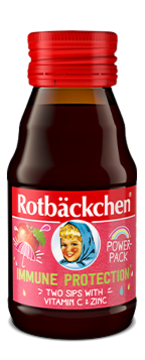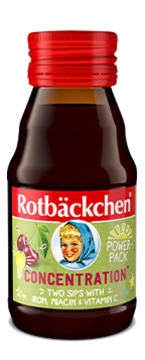Calcium
Calcium is essential for your health because it is an important building block of the body. The mineral is particularly well known as a component of bones and teeth. Especially with your children, you should make sure they always take in enough calcium as they grow.
Table of Contents:
Calcium – What is it really?
To stay healthy, your body needs a regular supply of vitamins and minerals.
There is no other mineral in the body that occurs in such large quantities as calcium:
The body contains 1 to 1.5 kilograms of the so-called "bulk element". This is needed to maintain teeth and bones – accordingly, 99% of calcium present in the body is stored here.
Calcium - Effect & special features
A balanced diet with sufficient calcium is very important for children. Children need calcium during growth phases as it is needed for normal growth and development of their bones. However, calcium not only helps growing children but also post-menopausal women because this mineral, together with vitamin D, reduces bone density loss, minimising the risk of bone fractures, since reduced bone density is a risk factor for osteoporotic bone fractures.
However, calcium is not only important for our bones. It also contributes to normal blood clotting and signal transmission between nerve cells. Did you know that calcium also effects your digestion? Here, calcium contributes to the normal functioning of digestive enzymes.
Foods with very high calcium content
![[Translate to Englisch:] Milchprodukte, Nüsse und Gemüse auf Tischplatte garniert [Translate to Englisch:] Milchprodukte, Nüsse und Gemüse auf Tischplatte garniert](https://www.rotbaeckchen.de/fileadmin/_processed_/c/5/csm_rotbaeckchen-calcium-02_a379cdf4e8.jpg)
You probably know that dairy products, like milk, cheese and yogurt, are main sources of calcium. Quark is an exception because it contains much less calcium than other products. So, you can quickly cover your calcium requirements with a balanced diet. Many types of cheese and yogurt are popular with children since they can easily be integrated into their diet. If you or members of your family are lactose intolerant or vegan, you can try calcium-rich vegetables, pulses, nuts, mineral-water or juices. The following foods have a particularly high calcium content:
| Dairy products | Calcium per 100 g | |||||
|---|---|---|---|---|---|---|
| Parmesan | 1107 mg | |||||
| Emmentaler | 1030 mg | |||||
| Gouda | 820 mg | |||||
| Edam | 800 mg | |||||
| Yoghurt | 120 mg | |||||
| Kefir | 120 mg | |||||
| Whole milk | 120 mg |
| Vegetables | Calcium per 100 g | |||||
|---|---|---|---|---|---|---|
| Kale | 212 mg | |||||
| Parsley | 179 mg | |||||
| Spinach | 117 mg | |||||
| Green beans | 64 mg | |||||
| Broccoli | 58 mg |
| Pulses, nuts and more | Calcium per 100 g |
|---|---|
| Poppy | 1460 mg |
| Sesame | 783 mg |
| Almonds | 252 mg |
| Hazelnuts | 226 mg |
| Chickpeas | 124 mg |
Average values according to Souci, Fachmann, Kraut: Food Composition and Nutrition Tables (7th ed.). Munich: C.H. Beck. 2008
These are just a few examples – many more foods contain calcium. Unlike vitamins, minerals are not heat-sensitive. They are not destroyed by cooking and baking. Nevertheless, take care while preparing food to make sure large amounts of calcium are not wasted in cooking water, since some of the calcium is transferred into the water during the cooking process. If you are on a diet, eating dark-green leafy vegetables such as kale or spinach is worthwhile.
One advantage is the calcium intake is better than with dairy products and you will not exceed your personal calorie target too quickly. Some vegetables, like spinach, contain substances that inhibit calcium absorption (called oxalates and phytates), however, these substances can be reduced by blanching the vegetables first.
Interaction with vitamin D
To absorb calcium contained in food, the body’s vitamin D stores must be sufficiently replenished. Calcium and vitamin D work “synergistically”, meaning they need each other. Vitamin D supports calcium’s absorption, metabolism and storage in the bones. Without enough vitamin D, calcium absorption is inhibited. If you and your children are often outdoors, the skin normally produces enough vitamin D from contact with sunlight. During the cold season, taking vitamin D in the form of foods like fatty fish, eggs, mushrooms, avocados and tofu is advisable.
More about vitamins & nutrients

Vitamins & minerals
Want to know what all the valuable micronutrients do, what foods have them and how much you need? Find more information here.
Find out more
Vitamin D
Vitamin D is the vitamin the body produces from sunlight when going for a walk or outside on the balcony. It is involved in many processes in the body and is indispensable for young children - and in fact, it is not really a vitamin.
Find out more
Vitamin B
The different members of the vitamin B complex perform different tasks – they take care of energy balance, the nervous system and many other processes in your body.
Find out more


